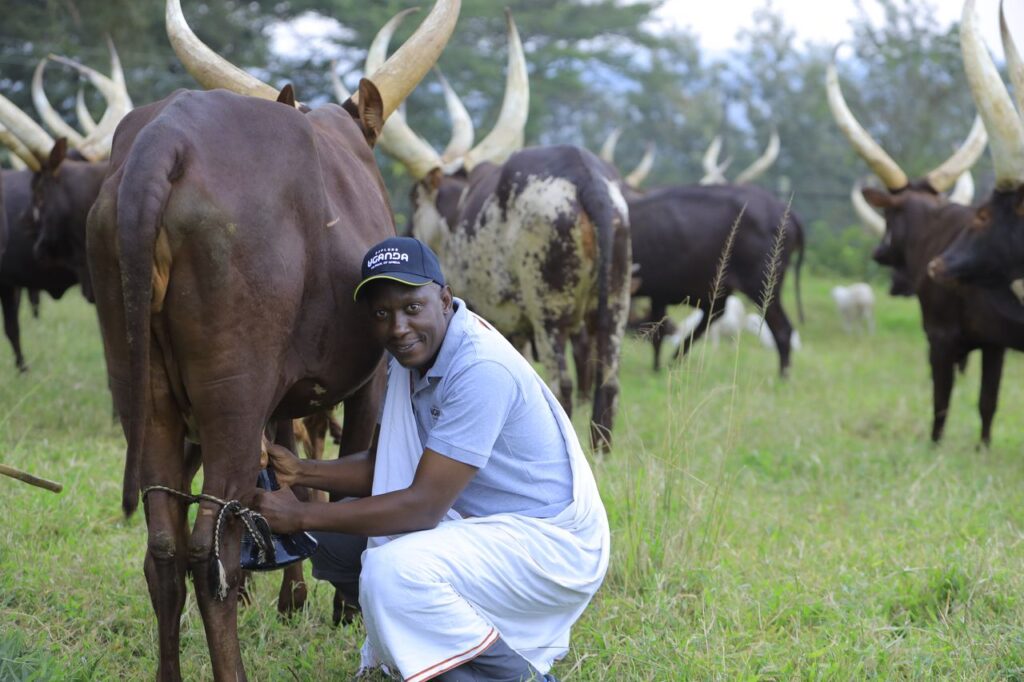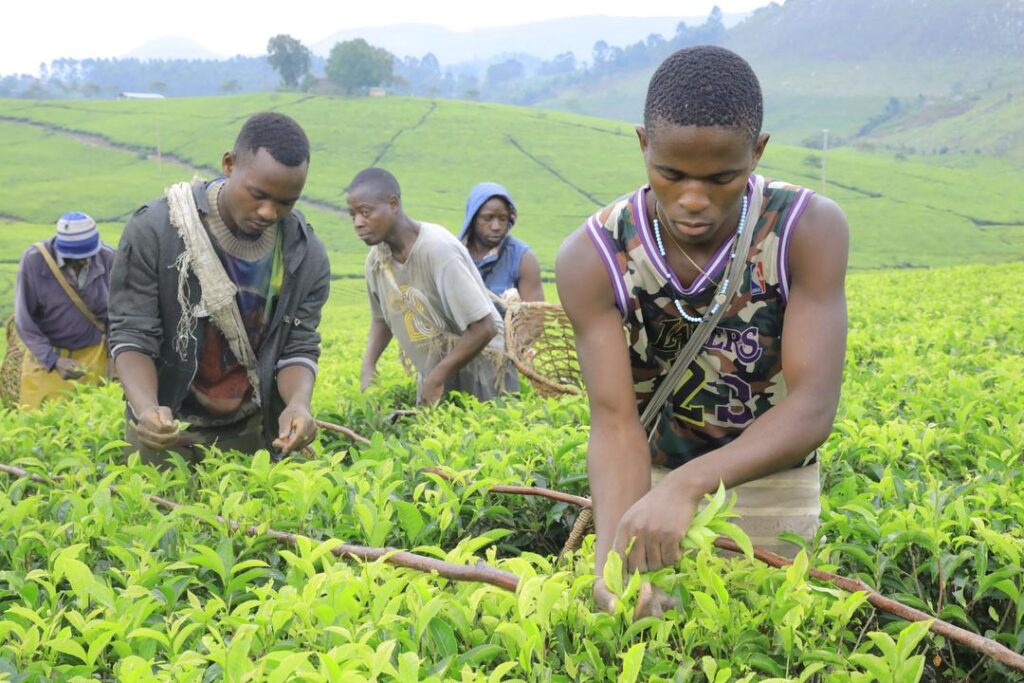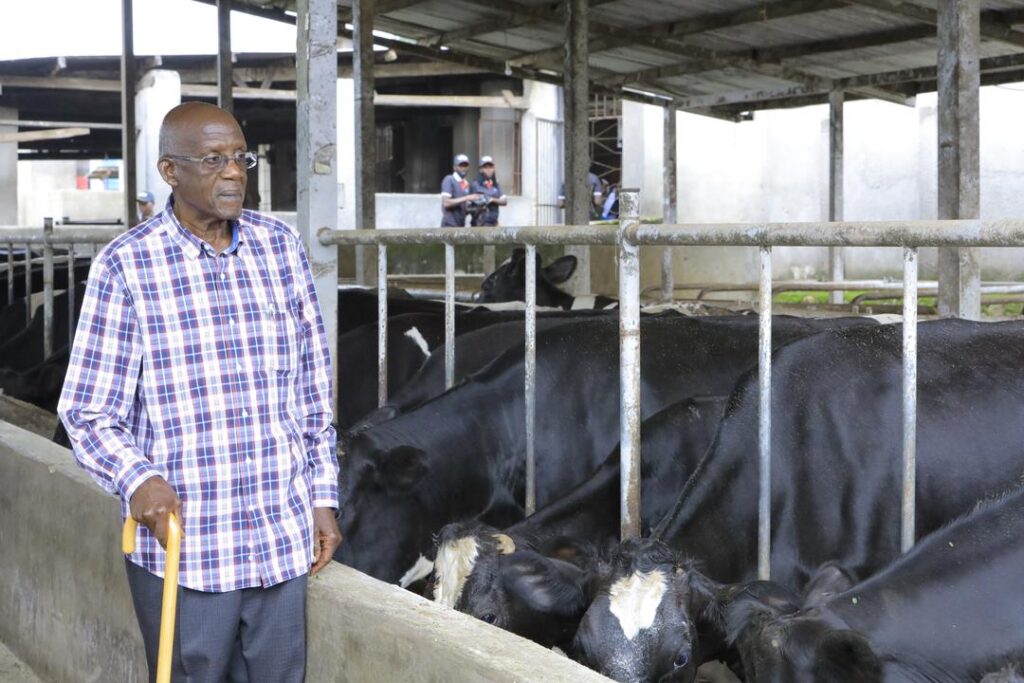The Government of Uganda, through the Ministry of Tourism, Wildlife, and Antiquities, is pioneering the promotion of agro-tourism and cultural tourism to complement traditional wildlife and savanna-based tourism.
This innovative strategy aims to diversify Uganda’s tourism offerings, highlighting the country’s rich agricultural and cultural heritage as unique and viable tourist attractions.
With agro-tourism, Uganda is positioning itself to offer an authentic, sustainable experience that combines nature, culture, and farming traditions.
Across the country, several agro-tourism establishments are being developed, with a focus on showcasing the agricultural and cultural practices of rural Uganda.
At the heart of this movement is Nshenyi Cultural Village, a pastoral retreat located near Kitwe Town in Ntungamo District. The hotel, is a model for community-based tourism, offering visitors an immersive experience in the traditional Ankore lifestyle.
Guests can explore the region’s agricultural practices, witness traditional farming methods, and engage with local communities for a glimpse into rural Uganda.
Located just an hour’s drive from Mbarara, Nshenyi Cultural Village offers visitors the opportunity to explore Uganda’s agricultural heritage. The village is nestled in a picturesque landscape of rolling hills, savanna grasslands, and acacia trees—an ideal environment for cattle rearing. Additionally, the region is known for its vast banana plantations and various subsistence and commercial crops.

At Nshenyi, visitors can take part in activities that reflect the traditional Ankole way of life. These include nature walks, visits to homesteads, and hands-on experiences with traditional farming tools and techniques. Guests can also engage in morning milking sessions, observe the care of long-horned Ankole cattle, and learn about local beekeeping practices.
Cultural performances such as traditional dances, visits to local schools, and interactions with artisans enrich the experience.
For those seeking adventure, a walk along the Kagera River offers the unique opportunity to cross into neighbouring Tanzania and Rwanda.
Another key player in Uganda’s agro-tourism sector is Kabeihura Mixed Farm, also located in Ntungamo District. The farm is diverse, offering tea plantations, animal farming, fish farming, and banana plantations. It also produces processed yoghurt that is sold across Western Uganda and in the Democratic Republic of Congo.

Mzee Eriyabu Muhoozi, the farm’s owner, shared his journey into agro-tourism. “At first, we did not consider agro-tourism as part of our strategy,” he said.
“We focused on agriculture, but over time, we saw growing interest from people wanting to learn about our farming practices.” Kabeihura now employs over 100 individuals and is looking at expanding to offer accommodation to visitors who wish to prolong their stays.

Despite Uganda’s strong agricultural sector, the potential for agro-tourism has largely remained untapped. Agriculture is a major pillar of Uganda’s economy, yet it has not been fully leveraged as a tourism product.
However, the Government is now recognizing agro-tourism potential in diversifying Uganda’s tourism industry. Nshenyi Cultural Village stands as a prime example of how agricultural traditions and cultural practices can be transformed into compelling tourist products.
Eunice Tworekirwe, the Principal Public Relations Officer at the Ministry of Tourism, explained, “We want to boost diverse tourism products and put more emphasis on agro-tourism.
Many Ugandans are farmers, and we believe farming can be a significant tourism product.”

By shifting the focus to agriculture and culture, the Ministry aims to change how Ugandans perceive tourism. Tworekirwe added, “Tourism in Uganda has been traditionally focused on wildlife, but we want to change that. Agro-tourism can offer rich, culturally immersive experiences that highlight our farming practices, food systems, and way of life.”
Mary Mugyenyi, the founder of Nshenyi Cultural Village and Uganda’s representative in the East African Legislative Assembly, emphasized the importance of promoting African culture and identity through tourism.

“Tourism in Africa is often defined by wildlife, but we have so much more to offer,” Mugyenyi said. “We need to preserve our identity and culture, and tourism can play a crucial role in this. Agro-tourism can help showcase Uganda’s cultural heritage while creating a platform for rural communities to benefit economically.”
Participants also visited Emburara Farm Lodge a premier agro-tourism destination located along the Mbarara-Ibanda road in southwestern Uganda. The lodge, situated on a 42-acre farm, combines luxury accommodation with immersive agro-tourism experiences. Visitors can engage in activities such as traditional milking sessions, cattle herding, and learning about sustainable farming practices.

The lodge’s Assistant Manager, Tumwijukye Sheilah, explained that guests can participate in various farm activities, including milking, cattle herding, and gaining insight into the daily routines of local farmers. “The goal is to provide our guests with a genuine farm experience while offering them the comfort and luxury they expect from a high-end lodge,” she said.
Photos by Mugerwa Marvin.









